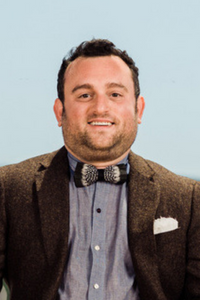Faculty Spotlight: Bryan Hunter

Bryan Hunter is an Assistant Professor who is joining the Department from the Rowland Institute at Harvard. The Hunter Lab is focused on the development of molecules and materials which can electrochemically and sustainably convert earth-abundant feedstocks to value-added chemicals and fuels. Bryan received his Ph.D. at Caltech working under Harry B. Gray and completed a Postdoctoral Fellowship at UC Davis with R. David Britt. He was an NSF Graduate Research Fellow and a Fellow of the Resnick Sustainability Institute at Caltech. The Department looks forward to seeing The Hunter Lab work to create a more sustainable future for energy around the world.
Why are you excited to join the faculty at Northwestern?
Northwestern Chemistry played a central role in the development of inorganic chemistry in the 1900’s. My graduate advisor, Harry Gray, studied for his PhD under Ralph Pearson and Fred Basolo, so in many ways this feels like a homecoming. I am particularly excited to work with my colleagues who are world-class scientists and enthusiastic mentors. It’s clear that the future of inorganic chemistry at Northwestern is bright, and I’m excited to be a part of it!
Which of your current research interests do you plan to carry out first at Northwestern and what are their potential applications?
I’ve had the privilege of starting my independent career at the Rowland Institute at Harvard four years ago. In that time, we have developed a robust program focused on sustainability and catalysis. We are going to hit the ground running at Northwestern with projects that will positively impact the environment and humanity through catalysis.
If you were to describe your research to someone outside of Chemistry, what would you tell them?
Our society has developed a profound reliance on oil, gas, and coal. We use these sources of energy to produce everything from fertilizer to plastics to pharmaceuticals. The future cannot rely on these limited resources, so we are looking at ways of making the items we need using abundant and sustainable starting materials. Beginning with solar-generated electricity, we work to develop processes that have the potential to synthesize all of our essential needs.
What inspired you to pursue a career in chemistry?
Asking logical questions and seeking the truth was always very rewarding to me, but I also appreciated the level of creativity in chemistry. Many times, especially in synthesis, I feel like an artist more than a scientist. Expressing myself both analytically and intuitively excites me.
What Chemistry class / professor did you enjoy the most as an undergraduate or graduate student and why?
I always enjoyed the lab components of classes the most! To be honest, I learn best at my own pace, so I enjoyed working through problem solving in independent studies and advanced quantum mechanics courses. The most fun I’ve ever had in a course was Advanced Ligand Field Theory with Harry Gray, which consisted of a single problem set which had no set deadline and no lectures. It took me 3 years to finish.
Do you have any advice for young researchers considering a career in academia?
Do what excites you. Being successful in academia is a marathon, not a sprint, so you need to be motivated by the science itself. Even as a first-year graduate student, think of yourself as an independent researcher. Own your work! Taking ownership is a refreshing way to remind yourself (and others!) that you belong in academia.
Can you tell us something not on your CV that you would like us to know?
I am a total theatre nerd! I spent most of my time as an undergraduate at Yale in the University Theatre (not in the chemistry building). Things have changed a bit since then, but I will never lose my passion for the performing arts.
